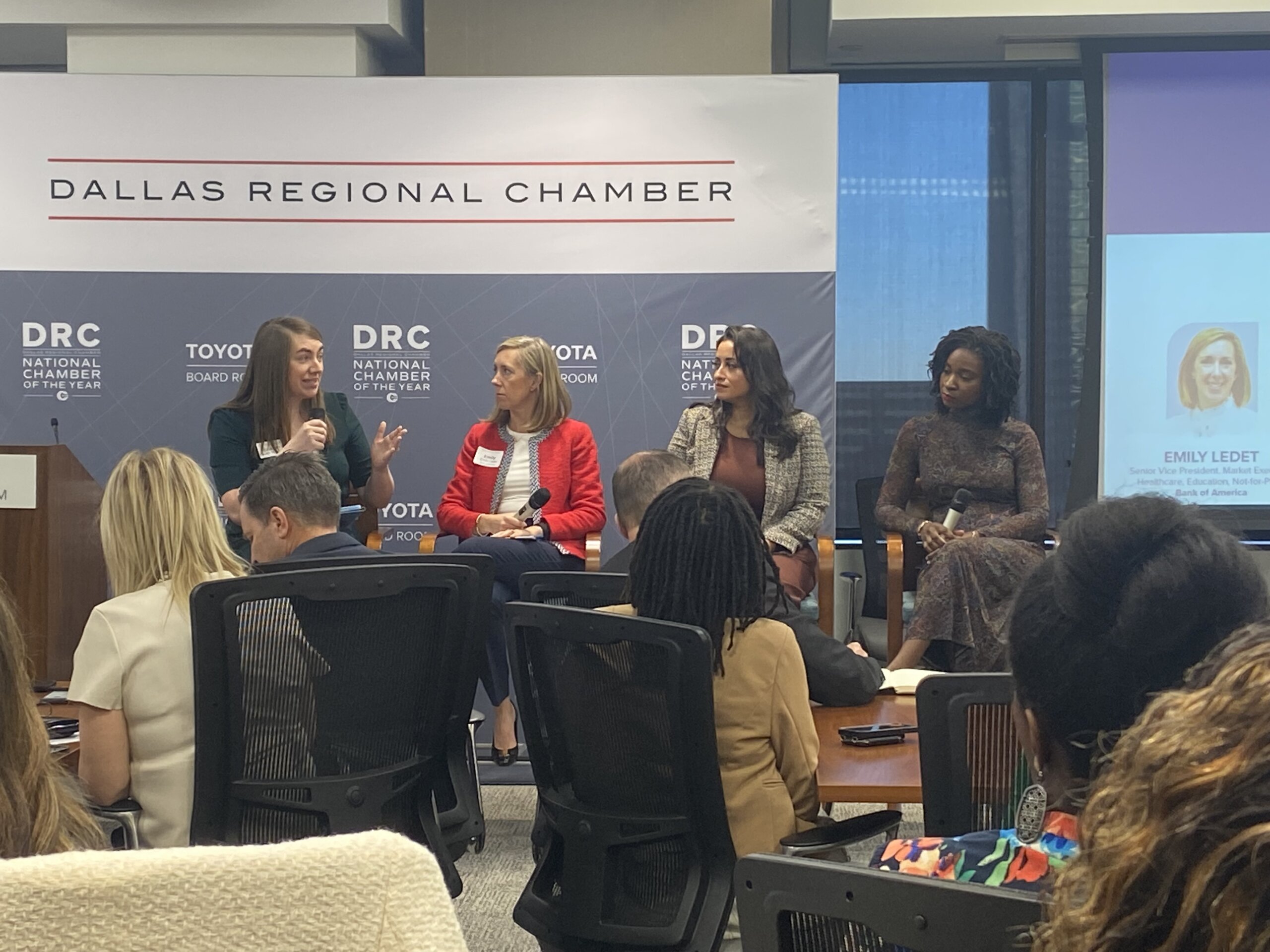By Amber Dyer, Coordinator, Communications & Marketing
The Dallas Regional Chamber’s (DRC) second Talent Talk of the year in September, presented by Holmes Murphy and BGSF, focused on understanding talent attraction and retention trends in the Dallas Region. Below are the key takeaways from the event.

Champion inclusion in the workplace
The event began with remarks from the DRC’s Senior Vice President of Diversity, Inclusion & Community Engagement Latosha Herron Bruff on the importance of inclusivity within organizations.
“Our disability community is one of the most under-looked and under-championed communities that are out there,” said Herron Bruff. She also shared that the DRC released a Disability Inclusion Toolkit in June for companies to reference as they work to include the disability community in their businesses.
“People with disabilities bring unique perspectives and problem-solving skills that can really drive your business forward,” Herron Bruff said. “But we have to create that environment, and we are asking you all to think about the next steps to progress, wherever you are in your journey.”
The panel discussed inclusive career development within organizations.
“For every organization, it’s about the people. So, any good leader needs to understand where their team is and what they need, and that needs to be a very open conversation,” said Senior Vice President and Market Executive at Bank of America Emily Ledet. “I do think it comes down to not necessarily where you are in your career that plays a role but knowing the individual and what they want to accomplish.”
Development is an accelerant tool
The discussion also explored the crucial role companies play in helping their employees develop skills that will accelerate their careers, not just sustain them.
“[But] how can a company provide learning and development opportunities when you have so many different needs, when you have different individualized career paths?” asked Elizabeth Caudill McClain, Senior Vice President of Talent Strategies at the DRC.
The panel discussed a variety of solutions to Caudill McClain’s question, sharing that organizations can adopt strategies to identify high-potential talent, such as conducting skills gap assessments. These assessments help pinpoint specific skills that can accelerate an employee’s performance beyond their current capabilities.
This approach can also boost a company’s return on investment, enabling organizations to choose the skills their employees want to develop, “and not just a hodgepodge of 50 things that [a manager] thought were important,” said Catherine Wheeler, Founder and Chief People & Culture Strategist at Pivot One-Eighty.
These strategies can help companies attract and retain top talent by demonstrating their dedication to employee development, fostering a sense of involvement in personal growth and exciting potential hires about an organization.
Understanding the workforce is key to development

“This is the first time in history that we’ve had about four to five generations in the workplace at one time. And that creates a lot of very different implications for what development means,” said Wheeler.
Each generation brings distinct views on personal and professional development, making it essential for organizations to develop tailored programs that address every employee’s unique needs and aspirations.
“And so, when [considering] development within [your] organization, are you truly understanding your workforce?” asked Maryanne Piña, CEO of Career Management Partners.
To do that, the panelists emphasized that organizations must proactively engage with their employees, implementing practices that consistently consider the diverse needs of individuals, even when those needs go unspoken.
This includes encouraging open communication between leaders and team members to identify personal development goals and create customized growth opportunities. By doing so, organizations can empower their internal culture while positively impacting the community around them.
The DRC is committed to transforming talent management practices
During the Talent Talk, Caudill McClain highlighted the DRC’s ongoing commitment to ensuring that businesses in the Dallas Region possess the necessary talent to thrive by introducing the Dallas Regional Chamber’s Talent Labs.
“This program takes place over a six-month period in which a cohort of senior human resources and talent professionals will connect in monthly meetings to engage in developing and activating talent strategies, not just within your company, but in the region as a whole,” Caudill McClain shared.
To learn more and register for the program, please contact talent@dallaschamber.org. Submissions to join the inaugural cohort are due Friday, Jan. 17.
Thank you to our co-presenting sponsors, Holmes Murphy and BGSF. Thank you to our corporate sponsor Carrington, Coleman, Sloman & Blumenthal, LLP.
To learn more about the Talent & Workforce work the DRC is doing, visit our website.